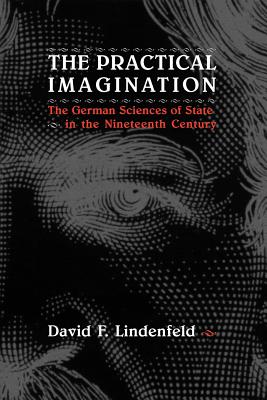Drawing on the work of Foucault and Bourdieu, David Lindenfeld illuminates the practical imagination as it was exhibited in the transformation of the political and social sciences during the changing conditions of nineteenth-century Germany. Using a wealth of information from state and university archives, private correspondence, and a survey of lecture offerings in German universities, Lindenfeld examines the original group of learned disciplines which originated in eighteenth-century Germany as a curriculum to train state officials in the administration and reform of society and which included economics, statistics, politics, public administration, finance, and state law, as well as agriculture, forestry, and mining. He explores the ways in which some systems of knowledge became extinct, and how new ones came into existence, while other migrated to different subject areas.
Lindenfeld argues that these sciences of state developed a technique of deliberation on practical issues such as tax policy and welfare, that serves as a model for contemporary administrations.| FindBook |
有 1 項符合
The Practical Imagination: The German Sciences of State in the Nineteenth Century的圖書 |
 |
The Practical Imagination: The German Sciences of State in the Nineteenth Century 作者:Lindenfeld 出版社:University of Chicago Press 出版日期:1997-06-23 語言:英文 規格:平裝 / 392頁 / 23.1 x 15.5 x 2 cm / 普通級 |
| 圖書館借閱 |
| 國家圖書館 | 全國圖書書目資訊網 | 國立公共資訊圖書館 | 電子書服務平台 | MetaCat 跨館整合查詢 |
| 臺北市立圖書館 | 新北市立圖書館 | 基隆市公共圖書館 | 桃園市立圖書館 | 新竹縣公共圖書館 |
| 苗栗縣立圖書館 | 臺中市立圖書館 | 彰化縣公共圖書館 | 南投縣文化局 | 雲林縣公共圖書館 |
| 嘉義縣圖書館 | 臺南市立圖書館 | 高雄市立圖書館 | 屏東縣公共圖書館 | 宜蘭縣公共圖書館 |
| 花蓮縣文化局 | 臺東縣文化處 |
|
|
圖書介紹 - 資料來源:博客來 評分:
圖書名稱:The Practical Imagination: The German Sciences of State in the Nineteenth Century
|











